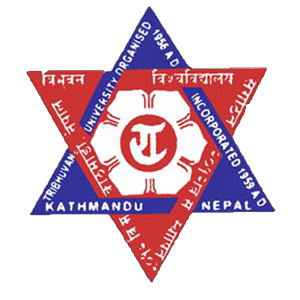Overview
Master of Science (MSc) in Microbiology at NIST Higher Education, Lainchaur, Kathmandu
MSc in Microbiology at NIST Higher Education (National College—NACOL), Lainchaur, Kathmandu, runs under Tribhuvan University’s Institute of Science and Technology (IOST). The program advances knowledge in microbial physiology, genetics, immunology, virology, environmental and industrial microbiology, medical microbiology, and research practice.
Program: MSc in Microbiology
Affiliation: Tribhuvan University, Institute of Science and Technology (IOST)
Host Campus: National College (NACOL), NIST Higher Education, Lainchaur, Kathmandu
Duration & Structure: Two academic years; four semesters
Medium of Instruction: English
Highlights
-
Semester system with theory, practicals, seminars, and a dissertation.
-
Laboratory-intensive coursework aligned to IOST standards.
-
Entrance examination conducted under IOST rules for MSc intake.
-
Campus supervision for dissertation planning, methods, analysis, and viva.
-
Safety, documentation, and ethics integrated into all lab activities.
Curriculum Details
The curriculum deepens core microbiology while linking methods to Nepal’s laboratory and industry needs.
Core theoretical strands
-
Microbial Physiology and Metabolism
-
Microbial Genetics and Molecular Biology
-
Immunology and Virology
-
Environmental and Industrial Microbiology
-
Medical Microbiology and Infectious Disease Concepts
-
Biostatistics and Research Methodology
-
Bioinformatics fundamentals and data handling
Laboratory and applied strands
-
Culture techniques, isolation strategies, and advanced identification
-
Antimicrobial susceptibility testing and resistance profiling
-
Environmental sampling, water and wastewater indices, and quality checks
-
Fermentation basics, upstream/downstream principles, and QC documentation
-
Serology, ELISA platforms, PCR workflows as per campus facilities
-
Instrument use and calibration logs (spectrophotometers, incubators, biosafety cabinets)
Research and dissertation
-
Topic selection linked to public health, environment, food/industrial systems, or fundamental microbiology
-
Proposal writing, ethics documentation, methods validation, and data analysis
-
Final written dissertation and viva in the last semester
Objectives
-
Build advanced understanding of microbial systems and their applications in health, environment, and industry.
-
Train students to plan, execute, and document research that meets university and laboratory standards.
-
Strengthen competence in analysis, presentation, and critical review of scientific findings.
-
Prepare graduates for professional roles or further study at the doctoral level.
Scope
Graduates work across diagnostic services, hospital labs, food and beverage quality units, pharmaceutical and biotech companies, environmental monitoring, water laboratories, and research institutions. Many graduates continue to M.Phil./Ph.D. programs or enter regulated lab environments where quality systems and documentation are central.
Learning Outcomes
Students who complete the program should be able to:
-
Explain microbial structure–function relationships and growth control in applied settings.
-
Use validated methods for culture, identification, and susceptibility testing with accurate records.
-
Analyze environmental and industrial samples and interpret compliance results.
-
Plan and conduct a research study, justify the method, analyze data, and defend conclusions.
-
Communicate results clearly in written reports, posters, and oral presentations.
Skill Development Modules
Laboratory technique
-
Biosafety practice, asepsis, and waste handling
-
Media preparation, sterilization, culture maintenance, and preservation
-
Microscopy, staining series, biochemical profiles, and rapid tests
-
Antibiogram set-up, MIC/MBC basics, and resistance notes
Data and analysis
-
Experimental design, controls, and error awareness
-
Spreadsheet/statistical workflows for lab data
-
Graphs, tables, and standards-compliant figure notes
Quality systems
-
SOP writing, deviation notes, CAPA basics, and internal QC records
-
Equipment logs, calibration, and validation checkpoints
Communication
-
Abstracts, literature reviews, citation practice, and seminar delivery
-
Poster and slide preparation for internal symposia
Teaching Methodology
Teaching balances lectures, demonstrations, rotating practicals, journal clubs, and guided seminars. Internal checks include short tests, lab notebooks, presentations, and pre-board reviews. Semester-end examinations and dissertation evaluation follow IOST procedures for the session.
Admission Requirements
Eligibility: Bachelor’s degree in Microbiology (or closely related life-science degree as specified by IOST) from a recognized university, meeting the session’s grade criteria.
Entrance: IOST-administered MSc entrance examination; selection based on merit.
Documents: Application form, photographs, academic transcripts/mark sheets, character and migration certificates, identity document, and entrance score sheet.
Attendance and exam rules: Follow the semester attendance threshold and internal assessment requirements issued for the intake year.
Applicants should monitor the official MSc entrance notice for precise dates, grade thresholds, and document formats for the current session.
Career Opportunities
-
Clinical and diagnostic laboratories: Culture and sensitivity, serology support, molecular testing under supervision.
-
Food and industrial labs: HACCP-linked checks, hygiene audits, and shelf-life studies.
-
Pharma and biotech: Environmental monitoring, cleanroom checks, in-process tests, and documentation.
-
Environment and water: Potability testing, wastewater parameters, and microbial indices.
-
Research and teaching: Assistantships, project positions, and progression to doctoral study.
Scholarships and Financial Aid
Merit-linked support: The campus may announce performance-based considerations during admission or semester reviews.
Need-sensitive notes: Limited schemes may be published for eligible students with required proofs.
Students should confirm current availability and deadlines at the admission desk.
Why Choose This Course?
You study within a structured semester system that blends advanced theory with sustained lab practice. The Lainchaur location connects you to hospitals, testing facilities, and agencies in Kathmandu for visits and collaboration. The dissertation builds a record of methods, results, and defense that supports both employment and higher study.
Conclusion
MSc in Microbiology at NIST Higher Education (NACOL) provides a clear, research-oriented pathway under TU-IOST. The combination of advanced coursework, scheduled practicals, quality documentation, and a supervised dissertation prepares graduates for professional laboratories, regulated industries, and academic research.
FAQ
Q1. How long is the MSc in Microbiology?
Two academic years across four semesters.
Q2. Who conducts the entrance?
Tribhuvan University’s IOST administers the MSc entrance for Microbiology.
Q3. What is the medium of instruction?
English, including lab records, reports, and presentations.
Q4. Does the program include a dissertation?
Yes. Students complete a supervised dissertation with a written report and viva.
Q5. Which undergraduate backgrounds are accepted?
BSc in Microbiology or a closely related life-science degree as defined by the current IOST notice.
Q6. What laboratory skills will I gain?
Culture and identification workflows, antibiograms, environmental and industrial testing, documentation, and safety practices.
Q7. Where can I confirm intake dates and eligibility thresholds?
Check the current MSc entrance notice issued by IOST for the session.



















